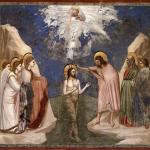 The truth is something which is revealed, and not something which we create or establish through our intellectual pursuits. This does not mean such pursuits are worthless. They are to be used to help us understand what has been revealed. What we can establish is a derivative representation of the truth, but such a representation is true so long as we do not hold it as absolute: we must let it participate in and unite with the absolute truth itself if we want it to have some form of the truth within. This is why debates over the truth are superfluous. We can debate the truth, and fight one another for it, looking for fame and glory as we think we can reason our way to the absolute truth. We cannot, and so long as we try to do so, we will cut ourselves off from the absolute truth, making even our relative representation of the truth a phantasmal representation of the truth which is as honest a representation of the truth as a counterfeit coin. This, then, is why Dionysius in his seventh letter said that he would not debate Greeks or anyone else on the nature of the truth:
The truth is something which is revealed, and not something which we create or establish through our intellectual pursuits. This does not mean such pursuits are worthless. They are to be used to help us understand what has been revealed. What we can establish is a derivative representation of the truth, but such a representation is true so long as we do not hold it as absolute: we must let it participate in and unite with the absolute truth itself if we want it to have some form of the truth within. This is why debates over the truth are superfluous. We can debate the truth, and fight one another for it, looking for fame and glory as we think we can reason our way to the absolute truth. We cannot, and so long as we try to do so, we will cut ourselves off from the absolute truth, making even our relative representation of the truth a phantasmal representation of the truth which is as honest a representation of the truth as a counterfeit coin. This, then, is why Dionysius in his seventh letter said that he would not debate Greeks or anyone else on the nature of the truth:
I, at any rate, am not conscious, when speaking in reply to Greeks or others, of fancying to assist good men, in case they should be able to know and speak the very truth, as it really is in itself. For, when this is correctly demonstrated in its essential nature, according to a law of truth, and has been established without flaw, everything which is otherwise, and simulates the truth, will be convicted of being other than the reality, and dissimilar, and that which is seeming rather than real.[1]
On the one hand, Dionysius explained that those who are good natured, who truly desire the truth, will receive it when it is properly demonstrated. Far from needing debate or conflict for the truth to be revealed, such conflict pits people against each other, turning them away from the promotion of the truth as they try to defend their own particular ideological opinions. It is hubris to think we can establish the truth through our reason alone, and likewise, that we can argue with others, making them to see what we see, and think what we think. For someone to receive the truth, they need experience with it; that is, they need to experience reality as it is, and not look for and follow some fanciful representation of it, as Dionysius further said:
It is superfluous then, that the expounder of truth should contend with these or those. For each affirms himself to have the royal coin, and perchance has some deceptive image of a certain portion of the true. And, if you refute this, first the one, and then the other, will contend concerning the same. But, when the true statement itself has been correctly laid down, and has remained unrefuted by all the rest, everything which is not so in every respect is cast down of itself, by the impregnable stability of the really true. Having then as I think well understood this, I have not been over zealous to speak in reply to Greeks or to others; but it is sufficient for me (and may God grant this), first to know about truth, then, having known, to speak as it is fitting to speak.[2]
Those who speak of the truth should do so in relation to the truth itself, and not merely being in contention against what others have said about it. Apophaticism is not nihilism. As we free ourselves from our attempts to map out and establish the truth, from the various images of the truth which we think we can establish through reason alone, we must be careful and not fall into the error which we had before and think we establish the truth through our negations. We cannot establish the truth. Our abstractions only open the way for the truth to be revealed: the expounder of the truth must have a revelation of the truth itself and work with and expound upon that truth in such a skillful way that they can reveal to others that truth to others, keeping in mind whatever they say will merely be a derivative form of that the truth so that their talk about the truth does not become confused as the absolute truth.
It is easy to get caught up in conflict with others, and in doing so, ending up believing one is the holder of the absolute truth which judges all others. This is the danger of such debates. The truth does not need to contend with what is not true, for it upholds itself, and so it does not need us to define it. Likewise, those who pursue the truth do not need to engage others, debating the truth, seeking to establish it through such debate. Everyone will come out and claim their own truth. Like a hydra, every untruth which is shown to be untrue will result in many more untruths coming forward, trying to convince us that they represent the truth. The meaningless pursuit of such conflict will result in various arguments which lead nowhere but confusion, which is how and why many philosophers even became skeptical in regards the truth because they know the result of such debates. Instead, as Dionysius indicated, we must negate falsehoods, to be sure, and silence ourselves, disengaging ourselves from such conflicts, so that we can truly let the truth reveal itself to us (in whatever fashion it finds is best to reach us). We can expound upon our understanding of it when asked, but when we do so, we need to do so with humility and charity. We must not seek conflict, because in such conflict, we rarely find those ready for and open to the truth. This is why Dionysius said he did not seek fame in debate like Greek philosophers did. He thought it was superfluous, and led people astray. What he found important is to hold a real love for truth and to do what is necessary in order to welcome it. What we apprehend of the truth can be and should be used to establish a relative presentation of the truth to help those who we can through our guidance: we are to speak when it is fitting to speak, and be silent when it is fitting to be silent. Pursuit of philosophical or theological glory through contention leaves mere contention; this is why such contention must not be confused as the kind of denial Dionysius intended with his use of apophatic theology.
[IMG=Luke presenting painting of Mary with Child by Guercino [Public domain] via WikimediaCommons]
[1] Dionysius, “Letter Seven” in The Works of Dionysius the Areopigate. Trans. James Parker (London: James Parker and Co,, 1897), 145-6.
[2] Dionysius, “Letter Seven,” 146.












